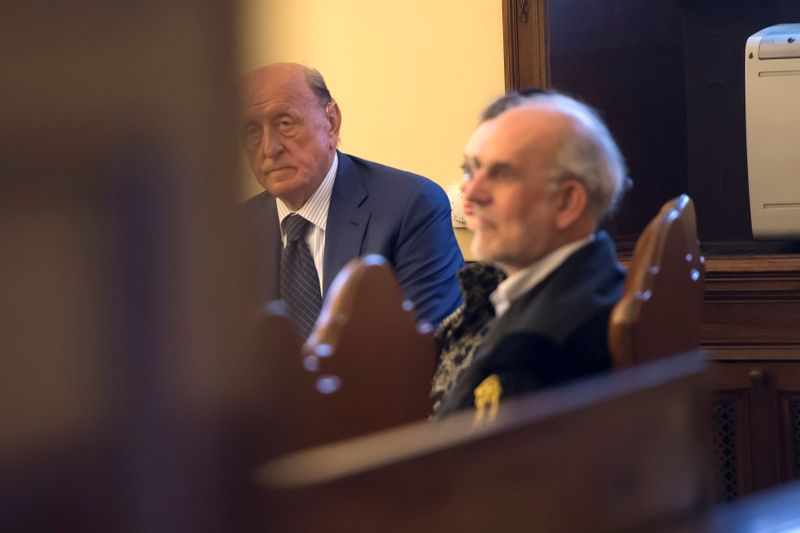By Philip Pullella
VATICAN CITY (Reuters) - A court on Thursday convicted Angelo Caloia, a former head of the Vatican bank, on charges of embezzlement and money laundering, making him the highest ranking Vatican official to be convicted of a financial crime.
Caloia, 81, was president of the bank, officially known as the Institute for Works of Religion (IOR), between 1999 and 2009.
The Vatican court also convicted Gabriele Liuzzo, 97, and his son Lamberto Liuzzo, 55, both Italian lawyers who were consultants to the bank.
The three were charged with participating in a scheme in which they embezzled money while managing the sale of buildings in Italy owned by the bank and its real estate division between 2002-2007.
They allegedly siphoned off up to 57 million euros by declaring a book value of far less than the actual amount of the sale.
Gabriele Liuzzo received the same sentence as Caloia while Lamberto Liuzzo was sentenced to five years and two months. All denied wrongdoing during the trial, which began in 2018.
None were in the tiny Vatican courtroom when the verdicts were read. Caloia's lawyers said they would appeal. It was not clear if the other two defendants would also appeal. A fourth defendant, former IOR director general Lelio Scaletti, died several years ago.
The court ordered the sequestering of about 38 million euros in defendants' bank accounts that were frozen and a payment of more than 20 million euros in damages to the IOR and its real estate company.
The prosecution left open the possibility of seeking further damages.
The men allegedly received the difference between the actual sale prices and the amount recorded on the books separately and often in cash, according to judicial documents seen by Reuters at the start of the investigation.
Some proceeds were deposited in a Rome bank account that was not registered on the IOR's balance sheet, according to those documents.
The internal investigation into the scam was begun in 2013 by then-IOR president Ernst von Freyberg, a German businessman.
He commissioned an independent audit of the sale of properties after noting suspicious accounting procedures under previous administrations.
Freyberg, who was president until 2014, began an overhaul of the bank, which for decades was embroiled in numerous financial scandals.

Thousands of accounts were closed as part of reforms begun by former pope Benedict and speeded up by Pope Francis, who was elected in 2013 after Benedict resigned.